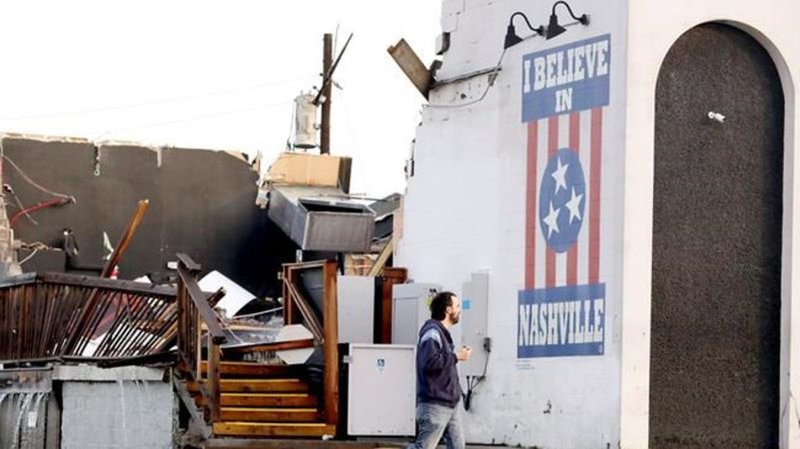
Nashville music club owners recall night the music died
NASHVILLE — When frantic messages started trickling in that a tornado had hit a beloved music venue in Nashville, Mike Grimes told himself it couldn’t possibly be that bad.
Could Basement East really be destroyed? Just hours before, the club Grimes co-owns had hosted a benefit concert for Democratic presidential candidate Bernie Sanders.
Affectionately known as “The Beast,” the club was only 5 years old, but already had established a reputation as one of Nashville’s trendiest music spots, across the river from the city’s tourist-laden honky-tonks on lower Broadway.
The venue, with a capacity limit of 475, quickly became known as a premier site for hosting big-name acts in an intimate setting. Margo Price, Cage the Elephant, John Prine, Maggie Rogers, Maren Morris, Sturgill Simpson and many others played there.
